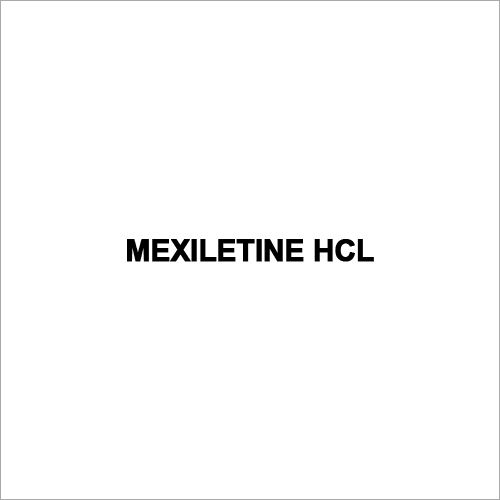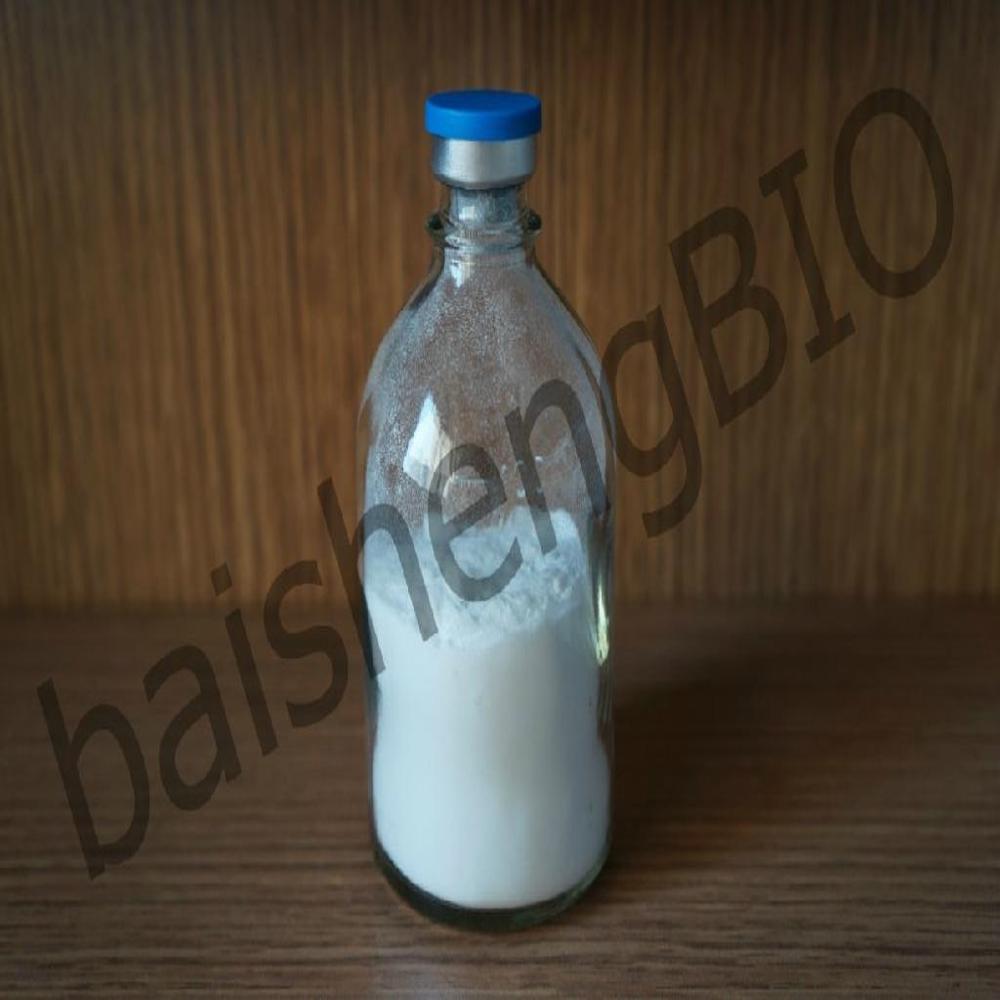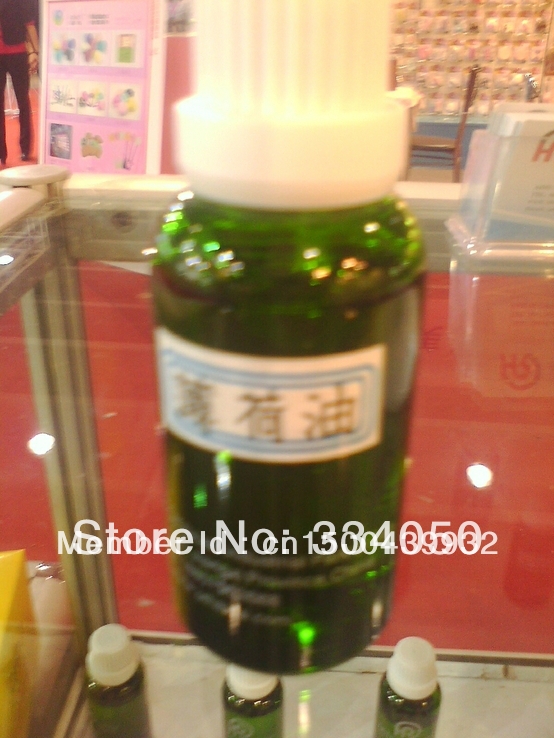Mexiletine HCl
150.0 INR/Kilograms
Product Details:
- Appearance A white to off-white crystalline powder.
- Ph Level 4.5 to 6.5.
- Molecular Weight 215.72 GSM (gm/2)
- Water Solubility Practically insoluble
- Molecular Formula C H ClNO
- Shelf Life 12 Months
- Smell No Smell
- Click to View more
X
Mexiletine HCl Price And Quantity
- 150.0 INR/Kilograms
- 100 Kilograms
Mexiletine HCl Product Specifications
- Odorless
- 226-262-5
- Room Temperature
- pharma
- 3004.90
- Mexiletine Hydrochloride is primarily used as an antiarrhythmic and analgesic medication
- Not more than 0.5% to 1.0%.
- 99%
- Practically insoluble
- 215.72 GSM (gm/2)
- 20 ppm
- Mexiletine Hydrochloride has several important medical applications, particularly in the treatment of heart arrhythmias and certain types of nerve-related pain
- 5370-01-4
- 95.0% to 105.0%
- 4.5 to 6.5.
- No Smell
- Mexiletine HCl
- A white to off-white crystalline powder.
- C H ClNO
- 12 Months
Mexiletine HCl Trade Information
- mumbai
- Cash in Advance (CID), Delivery Point (DP), Letter of Credit at Sight (Sight L/C), Letter of Credit (L/C)
- 5000 Kilograms Per Month
- 7 Days
- Yes
- Free samples are available
- DURM OR BAG PACK
- Australia, North America, South America, Western Europe, Middle East
- WE PROVIDES ALL KIND OF CERTIFICATIONS AS YOU REQUIRED
Product Description
We are offering high quality of Mexiletine HCL. We are known for manufacturing, exporting, distributing, trading and supplying Mexiletine HCl in Gujarat, India. Further, this is safely packaged by our professionals in diverse packaging options that maintain its purity and effectiveness. We manufactures and supply all products under GMP site with all types of regulatory supports.
Shreeji Pharma International currently export Mexiletine HCl to countries like Gulf Countries, South East Asia countries, African Countries, CIS Countries, LATAMcountries, Central American Countries and in European countries
- Properties:
- Metabolism: Liver (CYP2D6 and 1A2-mediated)
- Excretion: Kidney (10%)
- Elimination half-life: 10-12 hours
- ATC code: C01BB02 (WHO)
- AHFS/Drugs.com: Monograph
- License data: US DailyMed: Mexiletine
- Bioavailability: 90%
- Introduction of product :
Mexiletine has several uses including the treatment of abnormal heart rhythms or arrhythmias, chronic pain, and myotonia. In general when treating arrhythmias, mexiletine is reserved for use in dangerous heart rhythm disturbances such as ventricular tachycardia
- How does it work:
Mexiletine is used to treat certain types of ventricular arrhythmias (abnormal heart rhythms). Mexiletine is in a class of medications called antiarrhythmics. It works by blocking certain electrical signals in the heart to stabilize the heart rhythm
- Applications. Or where it is used :
This medication is used to treat certain types of serious (possibly fatal) irregular heartbeat (such as persistent ventricular tachycardia). It is used to restore normal heart rhythm and maintain a regular, steady heartbeat. Mexiletine is known as an anti-arrhythmic drug.
- How to use:
How to use Mexiletine HCL. Take this medication by mouth with a full glass of water (8 ounces/240 milliliters and food or an antacid, usually 2 to 3 times daily or exactly as directed by your doctor. Taking this medication with food or an antacid helps to decrease certain side effects
- Dosage of usage:
The dosage of MEXITIL (mexiletine hydrochloride, USP) must be individualized on the basis of response and tolerance, both of which are dose-related. Administration with food or antacid is recommended. Initiate MEXITIL (mexiletine hcl) therapy with 200 mg every eight hours when rapid control of arrhythmia is not essential. A minimum of two to three days between dose adjustments is recommended. Dose may be adjusted in 50 or 100 mg increments up or down.
As with any antiarrhythmic drug, clinical and electrocardiographic evaluation (including Holter monitoring if necessary for evaluation) are needed to determine whether the desired antiarrhythmic effect has been obtained and to guide titration and dose adjustment.
Satisfactory control can be achieved in most patients by 200 to 300 mg given every eight hours with food or antacid. If satisfactory response has not been achieved at 300 mg q8h, and the patient tolerates MEXITIL (mexiletine hcl) well, a dose of 400 mg q8h may be tried. As the severity of CNS side effects increases with total daily dose, the dose should not exceed 1200 mg/day.
In general, patients with renal failure will require the usual doses of MEXITIL (mexiletine hcl) . Patients with severe liver disease, however, may require lower doses and must be monitored closely. Similarly, marked right-sided congestive heart failure can reduce hepatic metabolism and reduce the needed dose. Plasma level may also be affected by certain concomitant drugs
- Side effects:
MEXITIL (mexiletine hydrochloride, USP) commonly produces reversible gastrointestinal and nervous system adverse reactions but is otherwise well tolerated. MEXITIL (mexiletine hcl) has been evaluated in 483 patients in one-month and three-month controlled studies and in over 10,000 patients in a large compassionate use program. Dosages in the controlled studies ranged from 600-1200 mg/day; some patients (8%) in the compassionate use program were treated with higher daily doses (1600-3200 mg/day). In the three-month controlled trials comparing MEXITIL (mexiletine hcl) to quinidine, procainamide and disopyramide, the most frequent adverse reactions were upper gastrointestinal distress (41%), lightheadedness (10.5%), tremor (12.6%) and coordination difficulties (10.2%). Similar frequency and incidence were observed in the one-month placebo-controlled trial. Although these reactions were generally not serious, and were dose-related and reversible with a reduction in dosage, by taking the drug with food or antacid or by therapy discontinuation, they led to therapy discontinuation in 40% of patients in the controlled trials.
- Warnings and precautions while using this product
Mortality: In the National Heart, Lung and Blood Institute's Cardiac Arrhythmia Suppression Trial (CAST), a long-term, multicentered, randomized, double-blind study in patients with asymptomatic non-life-threatening ventricular arrhythmias who had a myocardial infarction more than six days but less than two years previously, an excessive mortality or non-fatal cardiac arrest rate (7.7%) was seen in patients treated with encainide or flecainide compared with that seen in patients assigned to carefully matched placebo-treated groups (3.0%). The average duration of treatment with encainide or flecainide in this study was ten months.
The applicability of the CAST results to other populations (e.g., those without recent myocardial infarction) is uncertain. Considering the known proarrhythmic properties of MEXITIL (mexiletine hcl) and the lack of evidence of improved survival for any antiarrhythmic drug in patients without life-threatening arrhythmias, the use of MEXITIL (mexiletine hcl) as well as other antiarrhythmic agents should be reserved for patients with life-threatening ventricular arrhythmia.
Tell us about your requirement

Price:
Quantity
Select Unit
- 50
- 100
- 200
- 250
- 500
- 1000+
Additional detail
Mobile number
Email











 : nilesh.sheth70
: nilesh.sheth70
